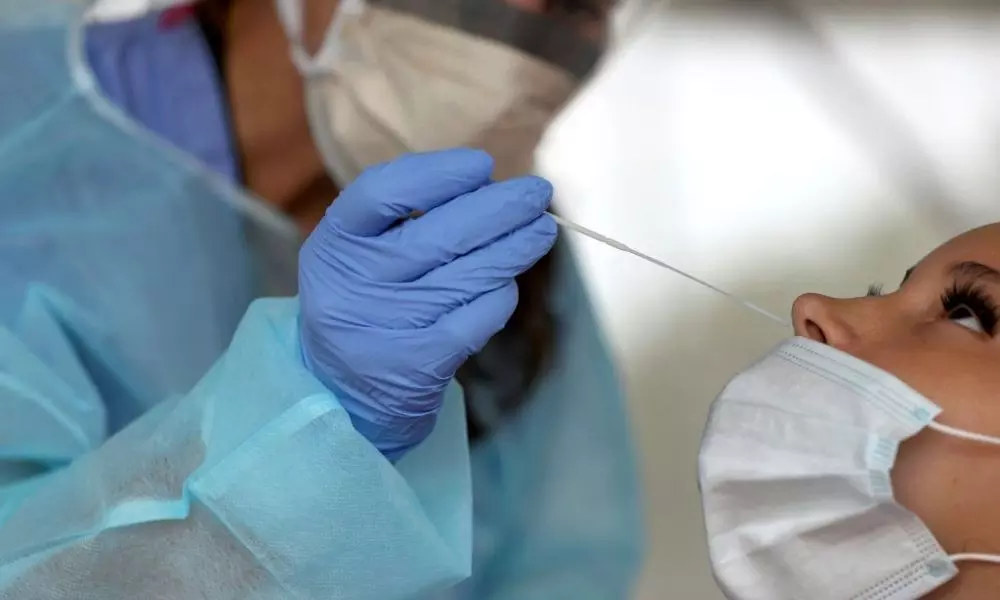Bengaluru: ICMR's test waiver for primary contacts draws mixed reaction from city doctors

ICMR’s test waiver for primary contacts draws mixed reaction from city docs
Amid increasing Covid-19 cases across the country, the Indian Council of Medical Research (ICMR) has recently issued a new advisory waiving testing requirements for many categories including contacts of confirmed Covid-19 cases unless identified as “high-risk” based on age or comorbidities.
Amid increasing Covid-19 cases across the country, the Indian Council of Medical Research (ICMR) has recently issued a new advisory waiving testing requirements for many categories including contacts of confirmed Covid-19 cases unless identified as "high-risk" based on age or comorbidities. While the ICMR decision found favour with a section of city doctors, others say irrespective of whether high or low risk they should be tested.
Speaking to The Hans India, Chairman, Central Infection Prevention and Control Committee at The Fortis Hospital, Bannerghatta Road, Dr Murali Chakravarthy said, "ICMR recently waived the test to diagnose Covid via lab tests unless the suspect is at high risk. High risk being described as elderly with comorbidities, cancer survivors, and patients receiving immunocompromised medications as a part of solid organ transplantations." The third wave is typically a short acute illness affecting only the upper airway sparing the lung. 'Hypoxia', pneumonia, oxygen requirement, ICU admission, and ventilator which has been the hallmark of the earlier 2 avatars of Covid-19 have been strikingly absent from the treatment modality. Considering these, perhaps ICMR is right in waiving the test. Being a highly infective variant, when the spread occurs even widely than now, the infrastructural problem of subjecting all suspects to lab tests and getting timely results will become real, he said.
The Aster RV Hospital, Consultant, Internal Medicine Dr S.N Aravinda said, "That makes sense because many people are vaccinated and have immunity. It will help reduce the burden on the labs also and result in quicker test results. One a person is symptomatic then taking a test is mandatory. Regardless, if someone has come into contact with a person who has tested Covid positive then they must take precautions and try to avoid any unnecessary movement or contact with other people."
Aster CMI Hospital, Consultant - Infectious Disease and Travel Medicine, Dr Swati Rajagopal said, "The primary contacts of the confirmed case must be tested irrespective of whether high or low risk.
It's important that primary contacts remain at home for 7 days and testing be done at 7 days even if asymptomatic before coming out of quarantine. With such a high level of community transmission, primary contacts must be tested. I would sincerely urge primary contacts of a positive case to get themselves tested after 7 days post-exposure (if no symptoms) or if with symptoms SOS.
This is important to prevent the spread of infection to other family members and to the community." In a tweet, Dr Ambarish Mithal, Chairman and Head of Endocrinology and Diabetes division of Max Healthcare Hospital, stated, "Would you like to go to hospital that does not test all admitted patients. Would you like to be in a ward surrounded by Covid-19 positive patients? We should encourage more testing in hospitals."














